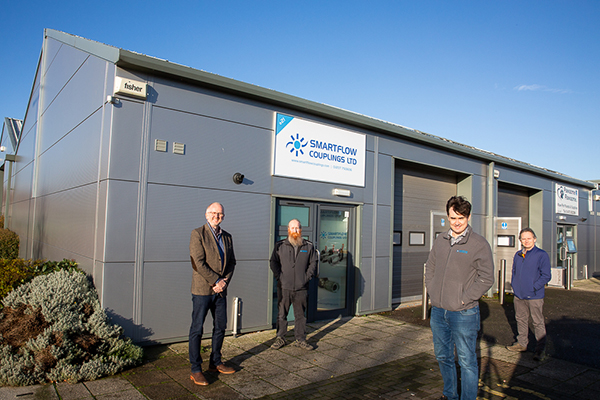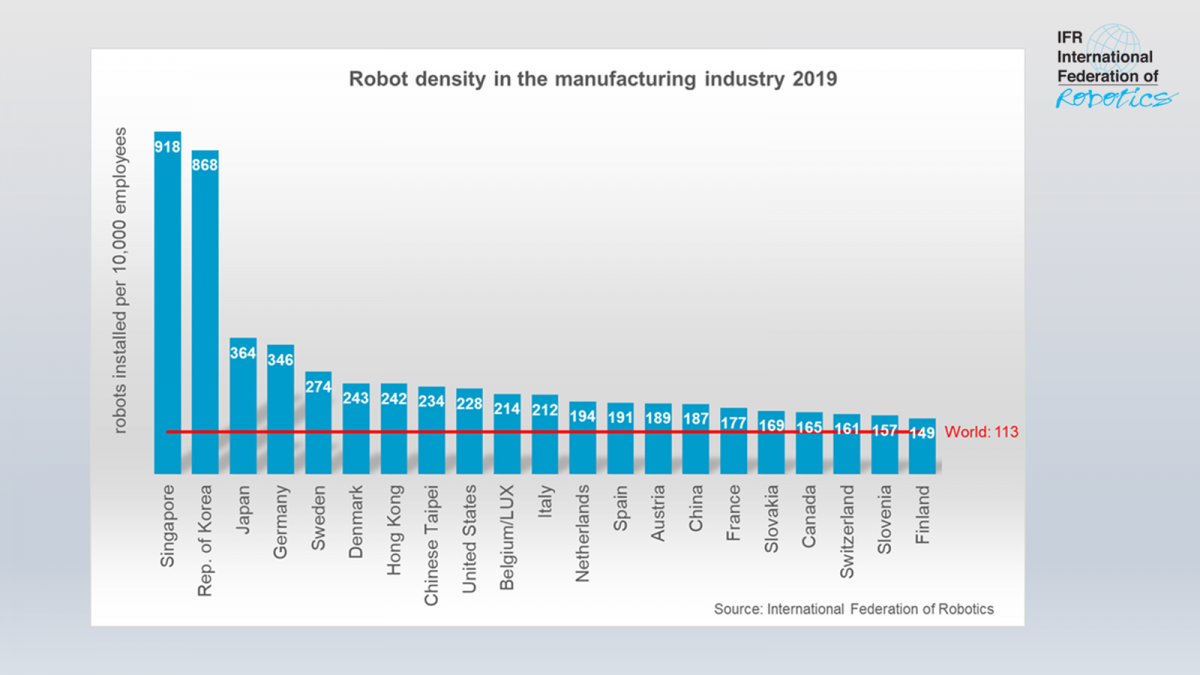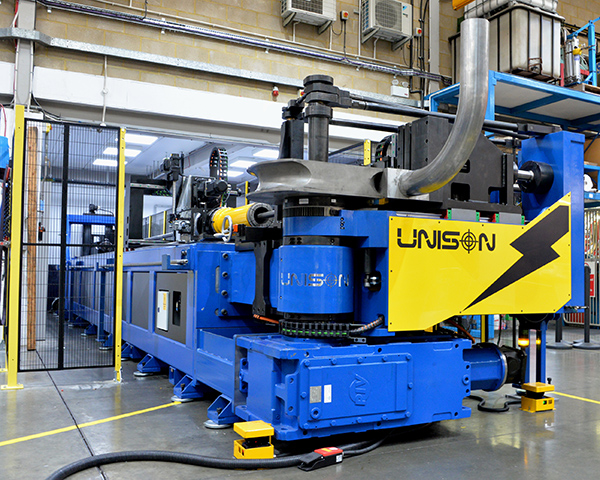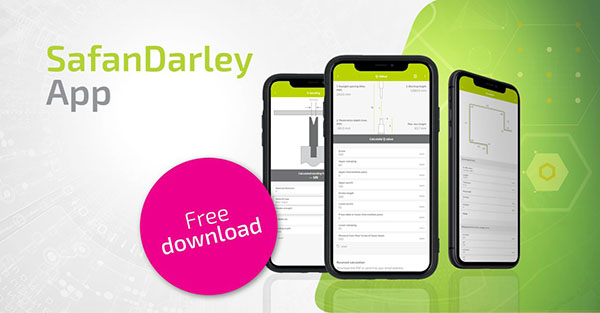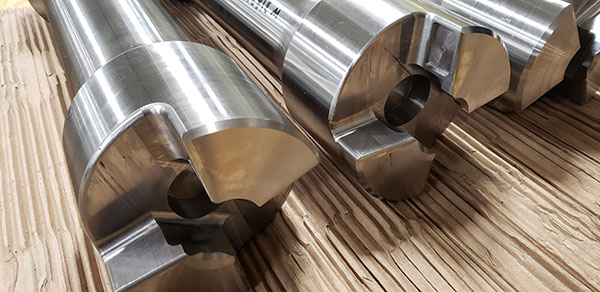
Those who have filled up their vehicles this week might want to thank Conroe Machine. That’s because this specialty job shop in Conroe, Texas, machines most of the components required to build down-hole positive displacement motors (PDMs). The oil and gas industry refers to these devices, which perform the directional drilling of oil and gas wells, as mud motors. And without mud motors, the oil and gas needed to power vehicles and heat homes would stay forever underground.
James Wardell gets a little credit, too. As the programming technology manager at Conroe Machine, Wardell was part of the team that implemented Vericut tool-path simulation software, and without Vericut, the company’s machining operations would be less efficient, less safe and far less predictable.
“Machining has become more complex in recent years,” he says. “It’s no longer just linear moves and simple arcs. You have dynamic roughing paths, 3D surfacing, and simultaneous four and five-axis cutting; you can’t expect a machinist to catch program errors in this situation. That’s why we needed a tool that could verify our NC programs and give us confidence in advance that everything’s good to go.”

As Wardell points out, Conroe Machine produces much more than mud motors. Since 2000, this 160-employee, 65,000 sq ft facility located on Conroe’s North Industrial Park has machined a wide array of high-precision parts for the likes of Halliburton, National Oilwell Varco (NOV) and Global Drilling Support International. These components include subsea parts such as stab plates and various control valves, many made from Inconel, Nitronic 50, ToughMet and other challenging materials. In addition, the company has extensive fabricating and engineering capabilities.
“We make bearing races, housings and PDM transmission parts by the hundreds of thousands, and we also do a lot of low-volume and prototype work,” says Wardell. “Much of what we do here centres on the oil and gas industry. After the last downturn, though, we’ve tried hard to diversify our customer base, and have expanded our service offering accordingly.”
Part of that expansion saw the purchase of a Toyoda SB316YM, a fixed-rail, bridge-type, five-axis machining centre with 10 tonnes of table capacity and 3 m of X-axis travel. Wardell and his colleagues call it the company’s flagship machine. Just prior to its installation, Conroe switched its programming system to Mastercam and invested in the aforementioned Vericut from CGTech, a provider of numerical control (NC/CNC) simulation, verification, optimisation and analysis software technology.

Conroe Machine had plenty of other reasons to purchase Vericut. The company boasts an impressive array of CNC machine tools, including an Okuma LU45 II four-axis lathe, Doosan DMV 5025 and 3016 machining centres, a 3-m capacity Mighty Viper 3100 vertical milling centre, and more. It was the crash potential that comes with five-axis machining, though, that helped convince the management team of the necessity for accurate tool-path simulation.
“We also have several automated production cells, with inline inspection and robotic part handling, but it was the bridge mill in particular that got us thinking about Vericut,” explains Wardell. “We wanted a way to verify that the post-processors on our new CAM system were accurate, and that we could catch any programming errors before they got to the production floor, possibly damaging the most expensive piece of equipment in our shop.”
That was five years ago, and Wardell says Vericut continues to prove its value every day.
“We’ve not had any crashes due to programming errors since implementing Vericut,” states Wardell. “There’s been a couple missed dimensions here and there, stuff I might have fat-fingered or forgotten during programming, but that’s why I started using the Auto-Diff function in Vericut, to make sure everything is where it’s supposed to be, and that I didn’t miss anything.”

Aside from crash avoidance, Vericut also reduces set-up times. As the operators can see the entire program in advance, there is less guesswork and apprehension. Wardell has not tracked how much time the company has saved, although he says it is significant.
“It simply takes a lot longer on an unverified program. The operator has to meticulously dry-run each line, with hands on the override and feed-holding the entire time. With a Vericut program, they can just go for it.”
In fact, notes Wardell, the machinists at Conroe no longer trust non-Vericut programs. Such programs are a rare occurrence in his department, though, and about the only time he does not simulate the entire program is when using a specially-shaped cutting tool or unconventional work holding, and has not had time to model it in the CAM system.
For those shops thinking about Vericut but concerned over the amount of work-holding and tool-holder modelling necessary to replicate the machining environment, Wardell says there is no need. He explains that he will sometimes draw a rough outline around non-standard tooling, “just enough to detect a collision”, and says he never did model the entire machine tool, only those areas where interference with a tool holder or fixture is a distinct possibility.
“I love Vericut,” he states. “If there’s any way I can use it, I will, and the operators feel the same. If they’ve had to edit the program, for example, they’ll ask me to simulate it again, just to be sure they didn’t miss a decimal point or a minus sign. We pride ourselves on being a cutting-edge shop, and are always looking for technology to make our facility more efficient, safer, and better equipped to maintain high-quality levels. Vericut definitely helps us achieve that.”
For further information
www.cgtech.co.uk







